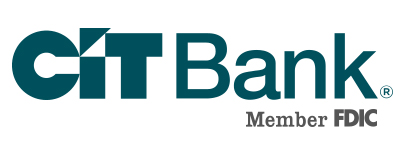
Pros:
- Checking account for 55 and older
- Anywhere Accounts
- Business accounts offered
- Variety of personal products offered
Cons:
- Accounts have fees
- Online banking is not free
- Accounts not offered everywhere
- Low-interest rates
Pros:
- Virtual Wallet rates are competitive
- Relationship Rates offer higher rates
- Student accounts offered
- Business accounts are available
Cons:
- Low interest rates for other accounts
- Accounts have monthly fees
- High required balances to avoid fees
- Must open CDs at branch locations
FirstBank offers a checking account for anyone over 55 years old. This account earns interest. There is no minimum balance to earn interest or required to keep in the account. This account does not have any fees, and direct deposit is not required.
The Anywhere Accounts are a savings and checking account. Both of these accounts do not have monthly fees. There is no minimum balance required to keep in the account. You can sign up to have money from transactions rounded up to the nearest dollar. The difference is deposited into your Anywhere eSave Savings account. Those transactions include debit transactions, bill pay, or other electronic transfers.
FirstBank offers accounts for businesses. Checking and money market accounts are available. There is a checking account offered specifically for nonprofits. There are no fees for the nonprofit checking and the basic business checking. The other accounts have a monthly fee.
Not just personal deposit accounts are available at FirstBank. Personal credit cards, home equity loans, and personal construction loans are available. Health Savings Accounts and accounts to help save for college are also offered.
Most FirstBank accounts have a monthly fee. The fees range from $5 to $20. The debit card has a yearly fee of $10. You are only allowed 25 deposits into the eSave Savings account per month. You are charged $0.10 for each item over 25.
Account interest rates at FirstBank are not competitive with other online banks. The interest rates are similar to your typical bank rates.
FirstBank offers products and accounts in Arizona, California, and Colorado. They have over 115 branch locations in these three states with over 200 ATMs. To open an account, you must live in one of these three states.
Online banking with FirstBank is only free if you sign up to receive electronic statements. The fee is $3 each month if you do not sign up. The money will be automatically withdrawn from your checking account on the first day of each month. If you want to receive paper statements, you must keep $10,000 in FirstBank accounts to waive the monthly fee.
Opening PNCs Virtual Wallet accounts earn competitive interest rates. This includes three specific accounts: the Spend, Reserve, and Growth accounts. The Spend account is your checking account for everyday spending. The Reserve account is a short-term savings account. It offers overdraft protection for the Spend account. The Growth account is for longer-term goals, like a down payment, car, or vacation. Virtual Wallet accounts offer interest rates that are competitive with other online accounts. You must link these accounts together to earn competitive rates.
Some Growth savings accounts offer slightly higher rates with Relationship Rates. You must qualify to earn the Relationship Rates. To qualify, you must have a set amount directly deposited into the Spend account. Making five debit transactions also qualifies you. The amounts of direct deposits vary from $500 to $5,000 depending on the account. If you qualify, your money will earn even higher interest rates.
PNC offers accounts for college students. With proof you are enrolled in college, the monthly fee is waived. This account offers a debit card and online and mobile banking. The same features of Virtual Wallet are available for the college account. Parents can sign up to receive alert texts when balances are low or overdrawn. Some colleges offer other perks with the account. For example, one college allows you to use your student ID card as a PNC ATM card.
PNC offers small and commercial business accounts. Checking, savings, and money market accounts are available. CDs, credit cards, and online services for your business are available. Bill pay, remote check deposits, and online payroll are services offered.
PNC standard account interest rates are low. To earn the competitive rates on Virtual Wallet accounts, you must meet the set requirement. If you open a standard account or do not meet the requirements, interest rates are low. To earn the competitive rates, be sure you open the right accounts and meet the requirements.
Most PNC accounts have a monthly fee. The fees range from $5 to $25 depending on the account. There are ways to waive the fees. Having a set amount in the account or in qualifying PNC accounts will waive the fees. Direct deposits of a set amount or if you are 62 years or older will waive some fees. As of March 2019, PNC loan and investment balances are not included to waive monthly fees.
The amounts required to have in PNC accounts to waive the monthly fees are high. The money market account requires $5,000 to avoid the monthly fee. Virtual Wallet accounts require $500 to $5,000 to waive the fee or $10,000 to $25,000 across all PNC deposit accounts. After March 2019, loans and investment balances will no longer count toward the total amount to waive fees. Their standard savings account only requires $300 to waive monthly fees.
Customers must open PNC CDs at a branch location. Most PNC CDs required $1,000 to open. The CDs with terms of seven to 89 days require $5,000 to open. PNC has branch locations in 19 states and the District of Columbia.


